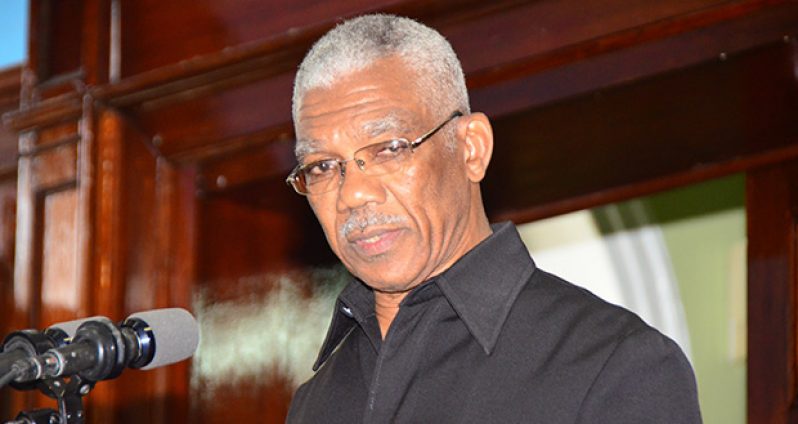By Navendra Seoraj
THE prevalence of vector borne diseases has wreaked havoc in the country over the past years, causing many to fall ill or die, and in light of this, President David Granger has stressed the importance of creating a green and healthier economy.At the ceremonial launch of the “Health @ 50 in Guyana progress health report 1966-2016” on Saturday evening, President Granger reflected on a key health issue, which has been perpetually affecting Guyanese for many years.
Vector borne diseases, which are transmitted by mosquitoes, have been an issue for many years, claiming the lives of many, particularly in the hinterland regions.
Another key contributor to the increase in vector borne diseases, especially in the hinterland and bordering areas, is the smuggling of contraband, which adds to the transmission of mosquitoes that bear deadly diseases.
However, through the Ministry of Public Health and the Pan American Health Organisation/World Health Organisation (PAHO/WHO), Granger stressed that more needs to be done, especially when it comes to eradicating diseases and viruses such as Dengue Fever, Filaria, Malaria, Zika and Chikungunya.
Some of these diseases have been under control for quite some time, but malaria poses a terrible threat to young people, who seek employment in the hinterland, due to various factors.
As vector borne diseases, these threats can only be fought if a cleaner and greener approach is adopted. In that light, there have been many efforts to clean the City, but this methodology has to be adopted across the country.
The declaration of the three new towns — Bartica, Mabaruma and Lethem — will also aid in making this initiative widespread and President Granger has called for each one to have a functional hospital, which would boost the provision of healthcare nationally.
However, this cannot be possible without the continued partnership with PAHO/WHO and other international stakeholders.
“We need co-operation and more careful management in our health sector in order to eradicate these ailments at all levels, be it municipalities or RDCs…We must also laud the efforts of the hardworking individuals who brought the sector to where it is today,” said President Granger, as he noted that Guyana cannot continue to be deprived of its prestige human resources due to these maladies.
The introduction of the health report will also provide an opportunity to reflect on the past mishaps and address them in order to create a better health sector and healthier environment in years to come.
Meanwhile, Minister of Public Health Dr George Norton, while speaking to the audience stressed that, “though the achievements of the public health sector ever since 1966 are impressive and well recorded, we should ponder as to what innovative health service delivery improvements need to be put in place, particularly as we are facing new health challenges.”
With the challenges of a growing and rapidly ageing population, Guyana’s healthcare needs are expected to rise in the coming years. And under the current administration, he said, there will be an expansion in the public healthcare services to ensure that citizens continue to have access to quality and affordable care.
And in honour of those who have worked hard to get the sector to where it is today, PAHO/WHO awarded 28 stalwarts of the health sector, who were selected through an adjudication process.
“I will like to congratulate all the nominees, especially those from the Ministry of Public Health, who have championed and worked tirelessly on health initiatives and leadership in reducing health disparities that has resulted in the improvement of the wellbeing of those persons living in Guyana during 1966-2016,” said Dr Norton.
As healthcare providers, “it is important that you continue to upgrade yourself throughout your careers to meet the needs of the future.
Patients are facing increasingly complex conditions, and expectations of the quality of care are also rising. Thus, it is critical for healthcare staff to continually seek to deepen their skills and knowledge in order to support new care models and to achieve higher care standards,” Dr Norton added.



.jpg)









